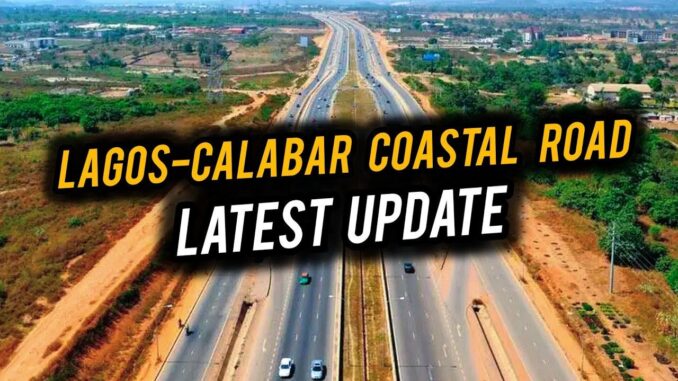
Afenifere is saddened that despite numerous complaints and objections, the Tinubu administration has refused to listen and review the 700 km Lagos-Calabar Coastal highway, but instead is rushing headlong into the project. The $13 billion Lagos project is not only environmentally and economically destructive, but irrationally replaces the 1400km $12 billion Lagos-Calabar railway project along East-West Road, adjudged to be the single most important economic empowering infrastructural development project in Southern Nigeria in over a hundred years, commissioned by both the Jonathan (2014) and Buhari (2021) governments.
The Lagos-Calabar Coastal Highway project is illegal, for not only breaching competitive tendering stipulations, but for also contravening the ENVIRONMENTAL IMPACT ASSESSMENT ACT, as stipulated in EIA Decree No. 86 of 1992, which places the project type in Category 1 and affecting the natural environment, making an ESIA report mandatory before commencement. The 2021 Environmental Assessment Procedures and Charges would have taken six months from May 29th when Tinubu came to power to secure a genuine approval report, involving series of stakeholder’s meetings, multiple visits and studies of the environment to be impacted by the highway, especially since the 700 km coastal Highway will affect the natural fauna, the coastal mangrove swamps that serve as natural barriers against tidal waves.
With the contract awarded in September 2023, an Environmental and Social Impact Assessment and a separate RAP (Resettlement Action Plan) was obviously not done as stipulated by law, to know the effects on existing business and the beaches of the area? Also, the 1.5km change in the previous plan by 1.5km required a new assessment before going ahead. Why does the federal coastal highway have to come far into town, to start from Chagoury private business, instead of stopping at the state Lekki-Epe expressway? Not only in samer climes, but even Oyo State is building a circular road for travellers to link to other routes without coming into Ibadan.
A fundamental question for the political leadership and intelligentia is why continue to build highways that can’t last due to the weight of trailers. In USA and Europe, railways were built before roads. In a developing nation like ours a lot of cement and steel is transported, and without railways, their weight will destroy the roads no matter how concrete they are built. Railcars carry at least 13 times the load weight of trucks.
The East-West Road is on solid ground closest to the coast, so what’s the benefit of building a new highway in swamps, being more expensive and environmentally destructive. Moreover, the $13 billion Coastal Highway doesn’t include the cost of the railway along its divide. What informed the choice of the $13 billion 700km coastal highway over a $12 billion 1400 km railway that would stimulate the local economy of over 20 towns? Unlike sparsely populated marshes, the East-West Road railway will make it easier to build feeder railways to Ife, Ilesa Ondo, Akure, Ado Ekiti, Owo and every corner of Ogun, Osun, Ondo and Ekiti states, instead of ‘fetching’ the railway from the ocean. Is it a case of financing, whereby roads could be built by local contractors versus railways that might need foreign paid contractors?
The Chinese were to finance and build the Lagos-Calabar railway along the East-West Road but APC government cancelled the agreement, and re-awarded it to GE USA, before hawking it to Russia and others, so we might have to build it locally. President Tinubu during his campaign advocated conscripting 50 million youth to the army, where they would feed on cassava, agbado and made to stimulate our agriculture sector. Instead of conscripting our youth to the army for agricultural development, it is a better idea to employ the unemployed youth in the Defense Industries Corporation of Nigeria (DICON) to build not only Lagos-Calabar, but Ilorin-Yola and Sokoto-Maiduguri railways that would create a grid with 20 times income and employment multiplier effects.
In addition to being a better transportation mode, railways share development and operating cost of an industrial complex. Agriculture accounts for 38% of our employment and 24% of our national income compared to the mere 1.6% combined income of Iron and Steel, Plastic and Rubber, Electrical and Electronics that a railway complex led industrialization can multiply exponentially to reduce unemployment and poverty. Also, Agriculture’s 40% wastage would be reduced with better storage, freezing containers and faster transportation. Logistics and other services will blossom within the railway industry that needs about 50,000 components suppliers, as well as in chemicals, plastics, rubber industries.
The Tinubu government must halt this illegal Lagos-Calabar Coastal Highway with no economic benefit, apart from being able to convert our coastline for nepotistic private business. It must return to the Lagos-Calabar railway along East-West Road with immense economic benefits for coming generations. It is sad that the National Assembly has shunned it’s duty as the people’s voice that balances executive excesses. Also, it should worry the contractor, that like with the Abacha money laundering, governments are not permanent and the need for testing the integrity of projects would transcend governments! The people will neither forgive nor forget the mortgage of their commonwealth.
Prince Justice Faloye,
Afenifere Publicity Department.


Be the first to comment